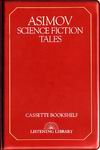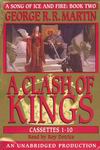
 Ecotopia – An Audio Novel
Ecotopia – An Audio Novel
By Ernest Callenbach, Read by Ernest Callenbach and Edwin Newman
2 cassettes – 3 hours [UNABRIDGED AUDIO ADAPTATION]
Publisher: Audio Renaissance
Date Published: April 1990 – Out of Print
ISBN: 1559270527
Themes: Science Fiction / Utopias / Environmentalism / Ecology /
Dateline — the early 21st Century. The nation of Ecotopia — made up of what was once Washington, Oregon and Northern California — has been independent of the United States for 20 years. Now, for the first time since its secession, this mysterious society is allowing an outsider to enter its borders and report on its way of life.
William Weston is a journalist from the eastern United States, the first person to be granted permission to enter Ecotopia since its breakaway from the rest of the USA 20 years earlier. The news reports he transmits from Ecotopia describe the strange customs, practices and beliefs of the Ecotopians. Meanwhile, his personal journal doesn’t try to remain objective as he comes to terms with his personal response to this strange new society.
Ecotopia is less a novel than it is an extended essay on how we could live if we would just all become environmentalists. The basic premise is simply an environmentalist version of Sir Thomas More’s literary classic Utopia. While listening to the story I never once got lost in the tale. I was always aware that this was directly inspired by More’s famous work – heck, even the title jars the suspension of disbelief, its like naming the first moon colony “Moonbase Alpha” and then expecting us all to take it seriously. But Ecotopia isn’t exactly a modern retelling of More’s work. Unlike his utopia, Ecotopia is earnest, real earnest – and in a way only a true environmentalist or an evangelical vegetarian can be. But don’t get me wrong, I enjoyed the story and liked a lot of the ideas in it. But the story is a complete daydream, with no chance of it ever happening, at least any sort of revolutionary way as Callenbach has it. I shouldn’t overstate the flaws. Ecotopia was written in 1975, and here nearly three decades later a significant portion of the population has adopted at least some of the mindset set out in the novel.
I must tell you I’m no true-believing granola-cruncher myself, but I concede that much of the novel has great power and is persuasive. Ecotopians enjoy 20-hour work weeks, have a stake in the product of their labor and live in a society that has abolished patriarchy. The greatest criticism that I can have against the story is that it’s completely unrealistic – it ain’t gonna happen, not like he’s written it. Now normally this wouldn’t be an issue at all. Many fantasy novels are set in worlds which are absolutely physically impossible, but nobody says “elves don’t exist so I can’t accept the story”, but in this case I think the criticism is apt. Ecotopia isn’t fantasy fiction, it’s utopian fiction – and the charge of implausibility is much much stickier when it comes to utopian stories especially when they’re earnest. Dystopian tales on the other hand, like George Orwell’s 1984 need not be plausible. They are vaccinations against future problems. By taking our modern moral and technological problems to an extreme in utopian/dystopia stories like Aldous Huxley’s Brave New World or Ira Levin’s This Perfect Day we are immersed in a complex vision of the problems and benefits such a society would have. Utopian dystopias demonstrate how good ideas can be ruined by unforeseen consequences and how taking some of the bad with the good might not be such a bad thing. But straight earnest utopian literature has to be laid out in such a way as to explain how we get there from here. Author Ernest Callenbach doesn’t do that. He doesn’t even wave his hands or use a throwaway excuse, and that shortcoming is a huge hurdle. All his characters are true believers, no one rails against the obvious implausibility of it all, so it is we, the listener who must. In Kim Stanley Robinson’s utopian novel Pacific Edge (1988), for example, a similar ecological balanced society is pondered, but it manages to explain how the self same human nature that we have in a consumer mad society like ours can also become an ecological utopia and it does it in a much more plausible and immersive fashion.
Callenbach himself narrates Ecotopia with help from Edwin Newman, they take turns reading the first person account of William Weston’s journey through Ecotopia and the dispatched news reports respectively. Both do very competent work presenting the story and have pleasant reading voices. The original cover art is attractive, the packaging adequate. Overall, this is a good package but not exceptional. Worth a listen but by no means a classic.
posted by Jesse Willis

 A Hero Of The Empire
A Hero Of The Empire

 Here’s an interview with Alexander Wilson, the creative mind behind
Here’s an interview with Alexander Wilson, the creative mind behind 

